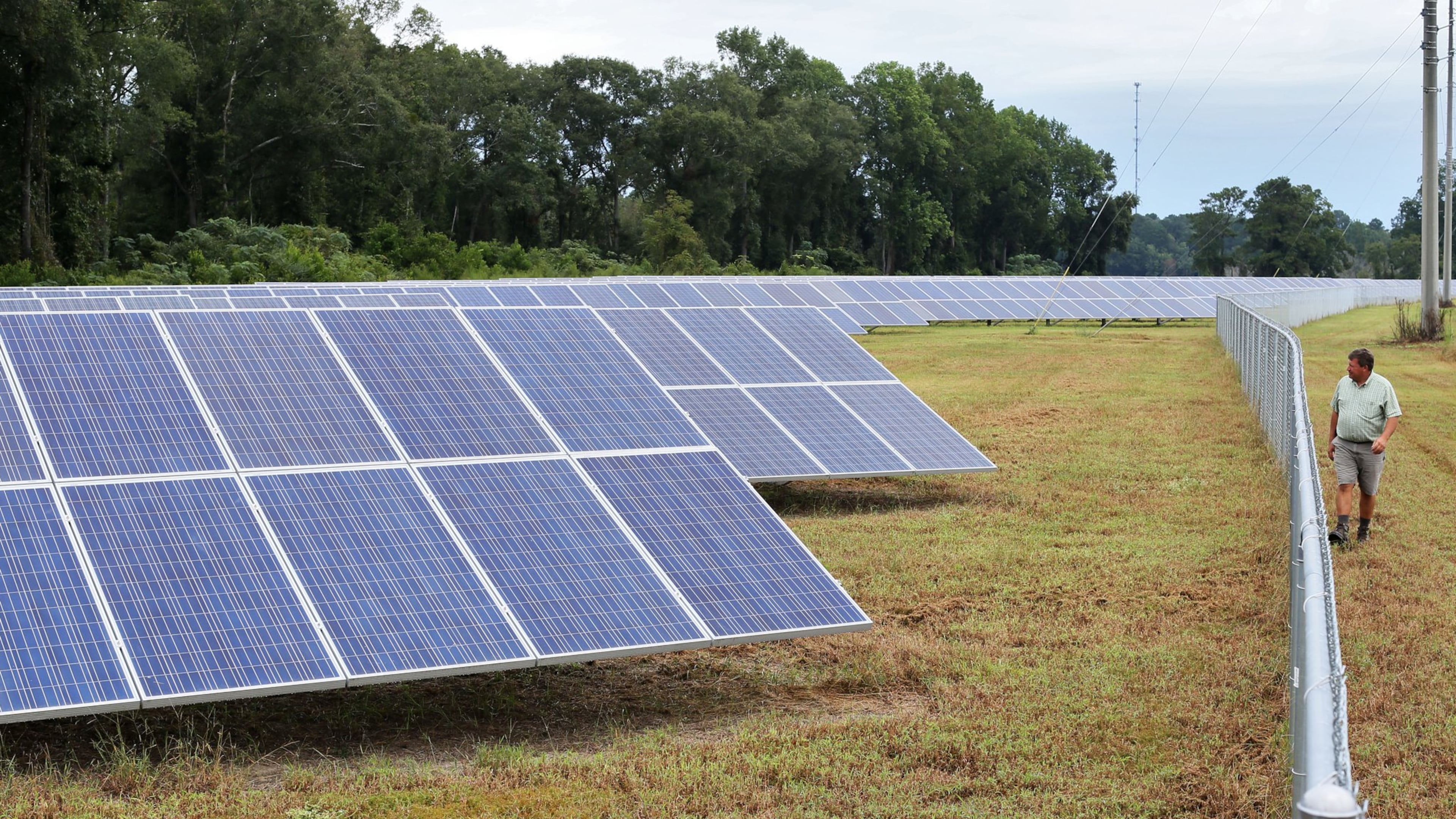UGA survey: Most Georgians believe in global warming, favor more solar

As the Biden administration pushes a more aggressive response to climate change, 77% of registered Georgia voters surveyed say they believe global warming is occurring and most say they are willing to pay more to combat it.
In the new poll by the University of Georgia’s School of Public and International Affairs, the vast majority of people said they believe human activity is a culprit, in part or in whole.
The survey of 1,031 registered Georgia voters has a margin of error of 4.2 percentage points and was conducted Feb. 8-26. During that time, severe winter storms in Texas caused massive power outages that made national news and raised questions about having resilient sources for electricity.
When it comes to dealing with Georgia’s future energy needs, 87% of those surveyed support building more solar power facilities.
Just 44% said they support expanding nuclear power, even as Georgia Power works to complete a massive nuclear expansion at Plant Vogtle. The project is years behind schedule and billions of dollars over budget. The first of two new reactors is currently slated to begin operating in November.
About 66% of those surveyed said they would support more power plants using natural gas, currently the biggest generating source for electricity in Georgia. More people said they support new hydroelectric projects and wind turbines. About 36% support building additional power plants that burn coal, once a dominant energy source for the state but one that has quickly lost ground due to relatively high costs and pollution concerns.
To combat climate change, the Biden administration has set new goals to reduce carbon emissions and has agreed to targets in the Paris climate accord. The Trump administration had pulled out of the agreement, saying it was unfair to the United States.
In the UGA survey, 59% of Republicans said global warming is happening. So did 96% of Democrats and 82% of independents. Assuming global warming is happening, 69% of Republicans said it is caused by human activity or by a combination of human activity and natural changes. The same was said by 95% of Democrats and 85% of independents.
Most people polled think some type of intervention is needed in response to global warming caused by carbon dioxide emissions from human activity. About one-third said action should be taken now. An additional 25% said immediate and drastic action is needed, 28% said more research is needed before taking action and 12% said it is not a serious problem.
A majority of those polled said they would support the state requiring that at least 20% of utilities’ electricity comes from renewables, even if it ends up costing the average Georgia household an additional $100 a year on electric bills. Their tolerance for how much more they’d be willing to pay each month varied widely. Interest fell off sharply at an extra $50 a month or more.
In a 2019 poll conducted for The Atlanta Journal-Constitution by UGA, nearly two-thirds of Georgia voters said they believed the nation should do more to fight climate change. Just under one-third said the U.S. had responded adequately or done too much.
On Tuesday, the parent of Georgia Power, Atlanta-based Southern Co., and five other major energy companies announced plans for a “seamless network” of electric vehicle fast-charging stations connecting major highways across much of the eastern and central United States. Also included in the Electric Highway Coalition are the Tennessee Valley Authority, Duke Energy, American Electric Power, Dominion Energy and Entergy Corp.
Neither Southern nor Georgia Power, the state’s biggest electric provider, disclosed details by deadline on how many new chargers they are planning as part of the coalition or when the chargers would be installed.
Some 39% of Georgians surveyed said they are very or somewhat likely to buy an electric vehicle for their next car purchase. But 59% said they are not too likely or not at all likely to do so.
Nearly three-fourths of those polled said Georgia should invest more in electric vehicle chargers, with 37% of those respondents saying the chargers should be funded by the state. About 24% said the cost should be borne by private companies, an additional 21% said by electric companies and 12% said by electric vehicle owners.
About 63% of those surveyed said they are not too likely or not at all likely to install solar panels at their home in the next five years, while 35% said they were very or somewhat likely to do so.
By the numbers
77%: Percentage of registered Georgia voters surveyed who say they believe global warming is occurring and most say they are willing to pay more to combat it
87%: Percentage of those surveyed who say they support building more solar power facilities
44%: Percentage of those surveyed who say they support expanding nuclear power
66%: Percentage of those surveyed who said they would support more power plants using natural gas


